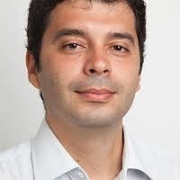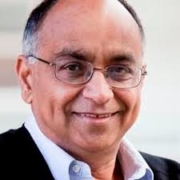Education Dialogues
Podcasting as Creation and Dissemination
A few weeks ago, I was invited to talk about podcasting as creation and dissemination on the Hong Kong University Social Contexts and Policies of Education podcast called Education Dialogues. As it says on its website: “Education Dialogues is a forum for educational sharing and debate through short written or oral communication.” The podcast is about 8 minutes. What some scholars of podcasting would call a short burst episode. I had such a good time speaking with Professor David Carless that I wanted to share it on FreshEd. Have a listen and be sure to follow Education Dialogues on Spotify.
Citation: Education Dialogues with Will Brehm, FreshEd, 345, podcast audio, March 11, 2024. https://freshedpodcast.com/hku/
David Carless 0:01
My guest today is Will Brehm, Associate Professor specializing in Comparative Education at the University of Canberra, Australia. So, an obvious first question for Will is; what do you see as the benefits and values of podcasts and podcasting?
Will Brehm 1:03
Thanks so much, David, for having me. It’s really wonderful to sort of be back at HKU where I graduated with my PhD a few years ago. Why podcasting, the benefits of podcasting? You know, I’ve been podcasting for eight years. And I would say the benefits that I derive from it have changed over time. And where I’ve landed most recently is thinking about being a scholar today, I think, is very much about creating ideas, but also disseminating ideas. And podcasting is in many respects, a fantastic outlet to disseminate ideas to a much wider audience than scholars are probably used to. And you can think of giving a conference presentation at some international conference. And I’m sure many listeners might have had this experience, where you go in and you look in the audience, and there’s 5, 6, or 7 people sitting there. And you think, why on earth did I spend all of this money traveling across the world to go to a hotel and present to six people about my ideas? Surely, there has to be a better way to do it. Whereas podcasting, you can reach 1000’s of listeners, and this is what FreshEd ends up doing. We reach 1000’s of listeners in 180 plus countries around the world on a weekly basis. We have by year, we are just about at a million downloads of our podcast, right? So, the reach we have is so much wider than the reach that I was getting -or many people get- as just being a scholar that goes to conferences and writes journal articles. Now, I’m not saying that we shouldn’t do that. We need to do that as well. There’s an absolute place for writing and conference going. But if we want to take our job of dissemination seriously, we need to think beyond the normal sort of academic outlets. And so that’s kind of why I do it. The other thing is, you realize that today, you walk down the streets of Hong Kong, you walk down the streets of Canberra, and most people have earbuds in. People are listening all the time. And this, as an educator, is kind of an opportunity, right? There’s now all of these spaces and moments in someone’s everyday life where you can actually have an educational moment. And so, I’ve heard from so many listeners of FreshEd that tell me they listened to the podcast while they’re washing the dishes, while they’re commuting to work, while they’re going to the gym. These are all spaces that academics typically are not able to sort of influence with students. All of a sudden podcasting allows us to do that. And then finally, I think the benefit of podcasting, it’s not just reach, and it’s not just engaging in educational spaces that didn’t otherwise exist, it’s being able to do so in a different way. And I think sound provides affordances for learning and for thinking that the written word do not. And I think as a podcaster, we can really lean into those affordances. We can be creative with sound, we can cross into the world of entertainment and sound art, kind of like Carl Sagan, or David Attenborough, who are using different mediums to promote scientific ideas.
David Carless 4:10
Thanks, Will. I’m totally convinced but some of my colleagues are a bit skeptical, and they say, “Well, we’re so busy. We’ve got to get on with the next paper. We’ve got to teach. We’ve got to look after our students. We’ve got 101 things to do. Why should I podcast”? Have you got any response to the people who say I’m just too busy?
Will Brehm 4:30
For those who are too busy. I mean, of course. I don’t think everyone needs to podcast right? We all are engaging in our scholarly work in different ways. I still write, I teach, of course, I’m still doing all sorts of administrative work on committees, going to conferences, all of that I do. But I really do find podcasting beneficial because in a way, it’s my small way of saying we can’t narrow what it means to be a professor. We can’t narrow down the academic space to Q1 journal articles. Because if we do that, we’re basically talking to just a very small community. We’re following the metrics rather than thinking differently. Rather than doing things creatively to shape society, to teach in new ways, to engage with students, to engage with ideas, to create new concepts, you know, push philosophy in new ways. So, to me, if I didn’t do it, I would feel like I’m missing out on something in my profession. So, yeah, we might be busy, but I hope that we’re busy in ways that are pushing ideas to their limits in whatever way makes sense to the academics and students in this world. I really don’t want to say that everyone needs to be a podcaster, but I do think we need to think beyond the written work and Q1 journals. And if we narrow down the academic space to that, I really think we’re doing a disservice to knowledge creation, to society, and to our students.
David Carless 5:54
Right. And then just a final question; what nuggets of wisdom would you have for somebody who was thinking of preparing an individual podcast of their latest paper, or someone who was thinking of setting up a broader collective podcast, such as the FreshEd podcast?
Will Brehm 6:10
I would say do it. That would be the first piece of advice. But also, really think about why you’re doing it. What’s the purpose of doing this? And if you can get that ‘why’ question answered. And as I said in the beginning, my answer to the why question shifted over time, and that’s fine. But I always had a reason why I wanted to do it. In the beginning, it was I wanted to build my network post PhD, and that’s what I did. But eventually, it turned into a lot more than that as I realized people were listening and got into why we might disseminate knowledge through audio. So, if you start out really try and figure out the why question, and then, if I can give one other piece of advice, don’t pay for it. I’ve seen more and more sort of predatory podcasting outlets arise lately, where they’re saying, if you pay us a certain amount of money, we will produce a podcast for you. I would be very hesitant for people to go and do that because the technology is all freely available. It’s very, very low bar. It’s sort of democratized with the cell phone. Anyone can make a podcast, so don’t pay for it, but figure out why you want to do it.
David Carless 7:17
Thank you so much, Will. That was fantastic.
Want to help translate this show? Please contact info@freshedpodcast.com
Related Guest Publications/Projects
Podcasting and education: Reflections on the case of Freshed
Recommended
Education Dialogues
David Carless
Thinking of starting a podcast?
How to start a podcast for free
How to publish a podcast for beginners
Have any useful resources related to this show? Please send them to info@freshedpodcast.com









